
The UNESCO-UNEVOC International Centre: Who We Are | What We Do | Working With Us | Get in Touch
The UNEVOC Network: Learn About the Network | UNEVOC Network Directory
For Members: UNEVOC Centre Dashboard
Thematic Areas: Inclusion and Youth | Digital Transformation | Private Sector Engagement | SDGs and Greening TVET
Our Key Programmes & Projects: BILT: Bridging Innovation and Learning in TVET | Building TVET resilience | TVET Leadership Programme | WYSD: World Youth Skills Day
Past Activities: COVID-19 response | i-hubs project | TVET Global Forums | Virtual Conferences | YEM Knowledge Portal
Our Services & Resources: Publications | TVET Forum | TVET Country Profiles | TVETipedia Glossary | Innovative and Promising Practices | Toolkits for TVET Providers | Entrepreneurial Learning Guide
Events: Major TVET Events | UNEVOC Network News

Across the world over recent years, governments, international organizations and the private sector have been developing frameworks for digital competence which support citizens, policy-makers and practitioners to understand the skills required in the 21st century digital world. In technical and vocational education and training (TVET), the development of students’ digital skills and competence play a key role in preparing them for effective functioning in the digital economy and society.
The webinar includes inputs from organizations leading on the development of digital competence frameworks at the country and international level. It also outlines new ways forward for extending access to digital competency for all.
Note that the presentations can be downloaded, see below next to each presenter.
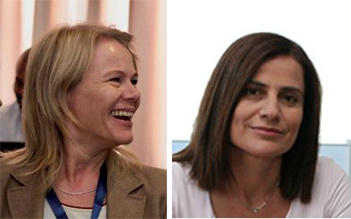
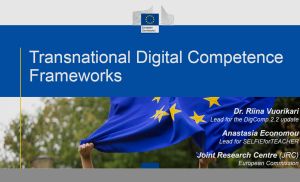
view slides
DigComp/DigCompEdu – defining digital competences for teachers and learners (and citizens) at the regional level (legal status, defining key features, actions to encourage take-up, e.g. SELFIE)

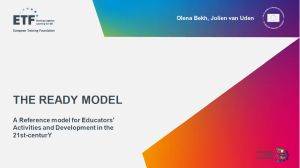
The READY Model – placing digital competence in the broader framework of teacher-trainer competence. Where does it sit? Why a broader framework rather than DigCompEdu?

Vikki Liogier, National Head of Ed Tech and Digital Skills, UK Education and Training Foundation
The Digital Teaching Professional Framework

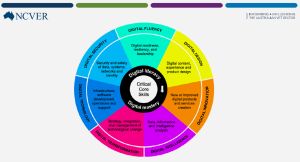
The Digital Skills Pathways model

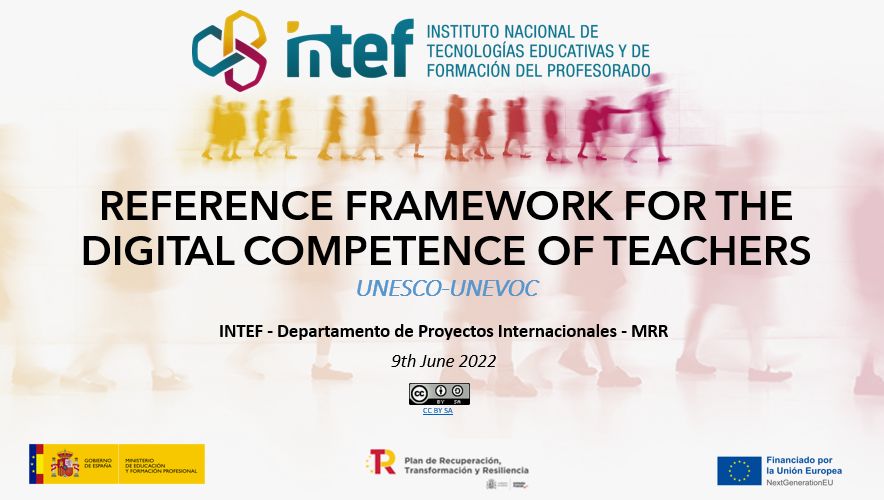
Spain – Framework of reference for digital teaching competence
While the key role of digital competence is well-acknowledged in meeting the needs of Industry 4.0 and the new demands of the digital economy and society, COVID-19 has exposed, with urgency and intensity, the importance of building digital competence ...